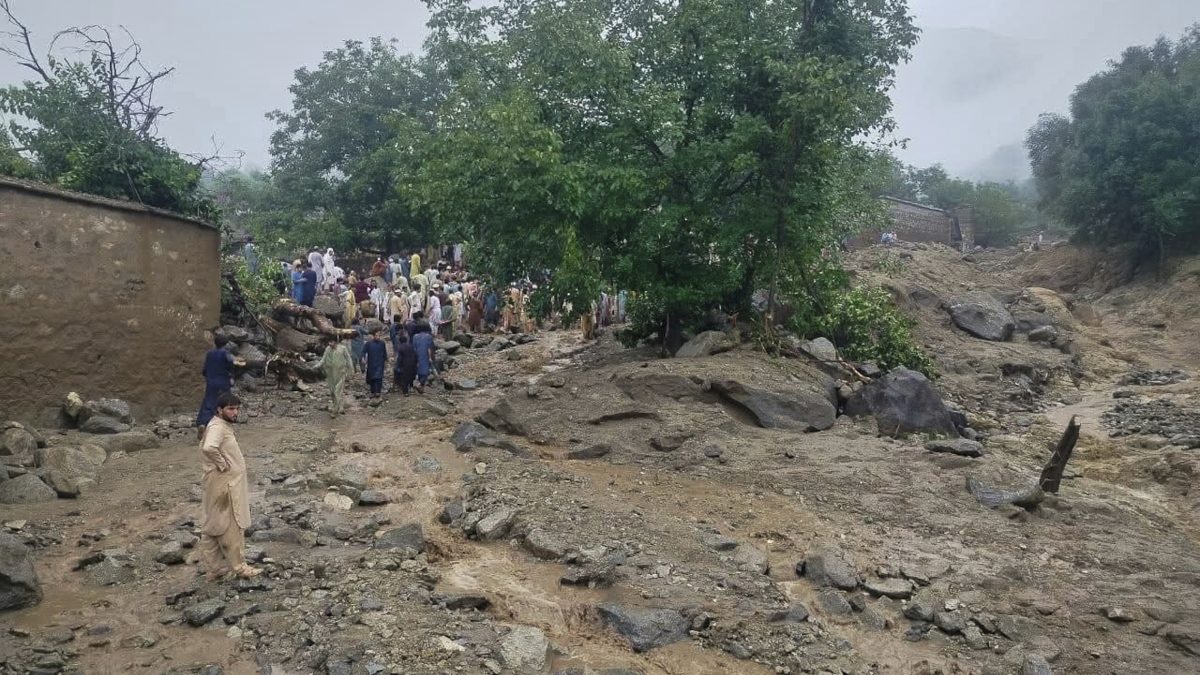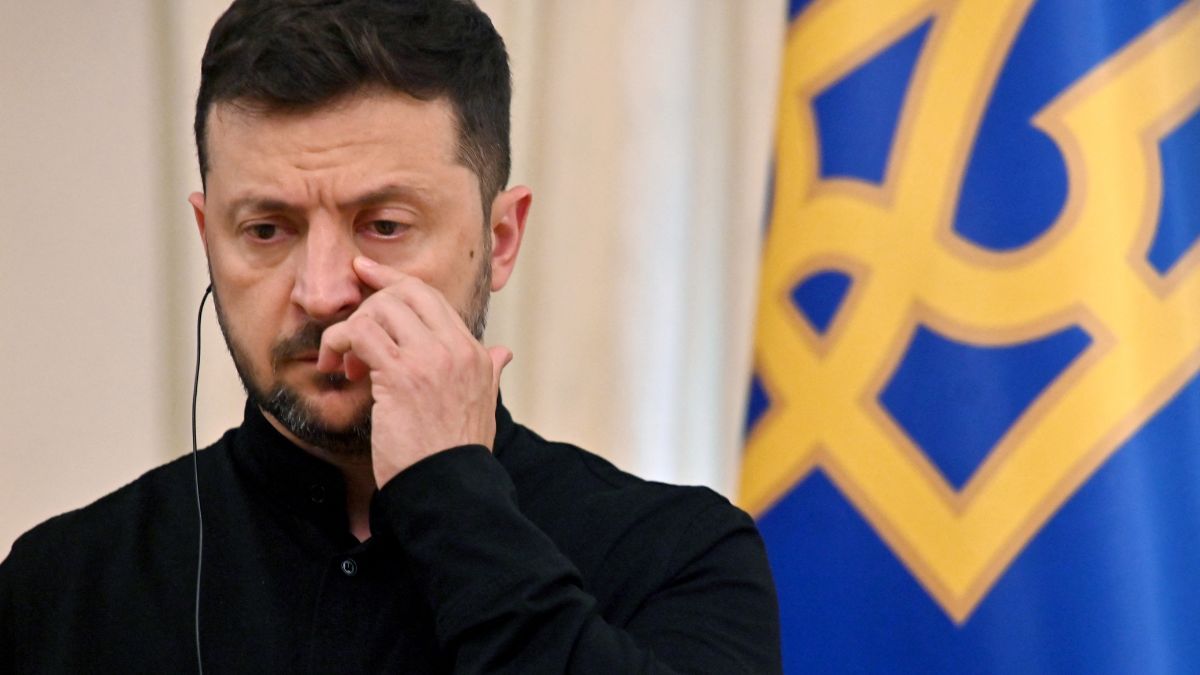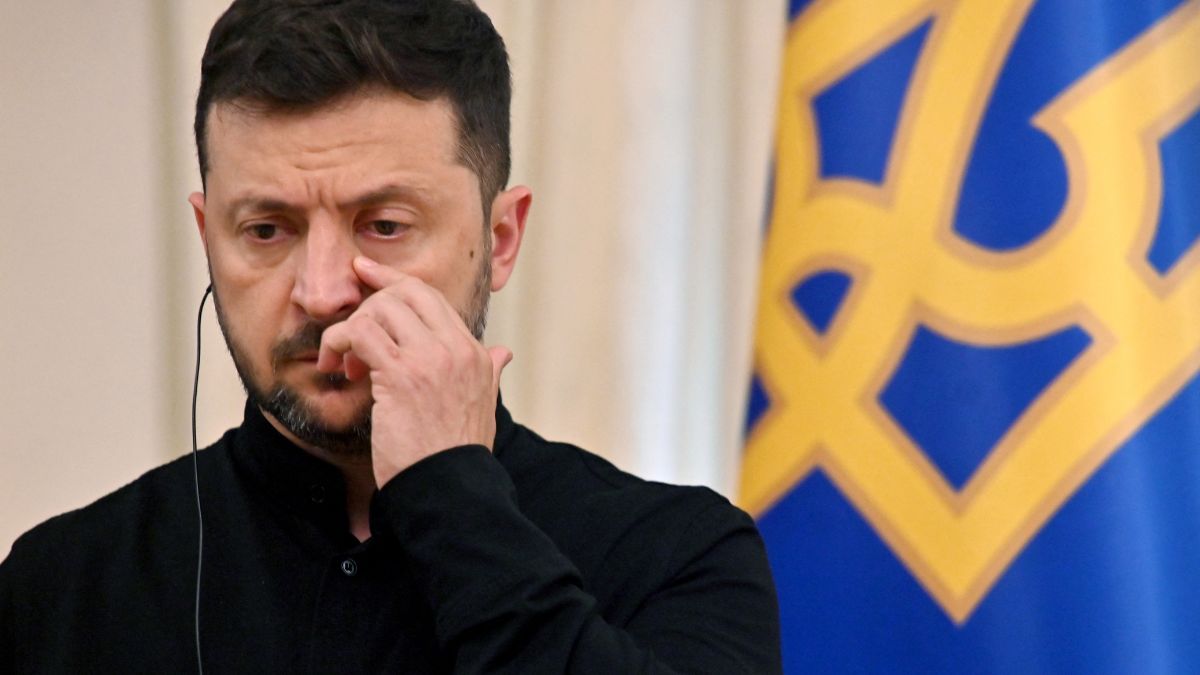Is another coup in Africa on the cards? Just months after Nigeria’s president Mohamed Bazoum was ousted by his presidential guard and a military coup occurred in Gabon, now Sierra Leone is under military curfew. The development comes just months after president Julius Maada Bio was re-elected for a second term in a disputed vote in which the main Opposition party accused the electoral commission of rigging the results. But what happened exactly? Why are tensions rising? Let’s take a closer look: What happened? On Sunday, armed gunmen attacked the Sierre Leone military’s main and largest barracks in the West African nation’s capital. They also overran detention centres, including a major prison. BBC reported that some soldiers in Freetown carrying heavy weapons captured a police car.
Others were chanting “clean Sierra Leone".
It was not immediately clear how many prisoners had broken out of the facility, which a US state department report said was designed for 324 inmates but held more than 2,000 in 2019. There has been no official confirmation about the identity of the attackers, as per BBC. Bio declared a nationwide curfew in response to the attacks. A witness named Susan Kargbo told The Guardian she was awoken “by a loud sound of heavy machine gun and bombs coming from the Wilberforce barracks around 4.30 am. “I was shocked and … the gunshots continued until this morning. It was like a war,” she said. Witnesses told AFP they heard gunshots and explosions in the city’s Wilberforce district, where the armoury and some embassies are located. Other witnesses reported exchanges of fire near a barracks in Murray Town district, home to the navy, and outside another military site in Freetown. The detention centres, including the Pademba Road Prisons were attacked just as security forces fought to restore calm during sustained shootouts at the Wilberforce military barracks, according to Information Minister Chernor Bah. “The prisons were overrun (and) some prisoners were abducted by the assailants while many others were released,” Bah said. [caption id=“attachment_13433242” align=“alignnone” width=“640”] Hooded armed men in military fatigues stand on a street after unidentified gunmen attacked military barracks and attempted to break into an armoury at Congo Cross roundabout in Freetown, Sierra Leone. Reuters[/caption] Video posted on social networks suggested numerous prisoners had escaped from the central jail. One man who was in a group filmed on the street by an AFP correspondent said they had escaped from the prison. The information ministry said security forces had pushed the attackers to the outskirts of Freetown, with drone video taken by AFP showing empty streets in the capital. Videos posted online showed soldiers patrolling Freetown’s empty streets and captured the loud blasts of gunshots at dawn. The AP couldn’t immediately verify the authenticity of the videos. Bio wrote on X:
Fellow Sierra Leoneans,
— Julius Maada Bio (@julius_maadabio) November 26, 2023
I bring you greetings from the Presidential Lodge in Freetown.
In the early hours of this morning, there was a breach of security at the Military Barracks at Wilberforce in Freetown, as some unidentified individuals attacked the military armoury.…
A Reuters journalist, who earlier witnessed an armed group of men commandeer a police vehicle near the Wilberforce barracks, said streets were mostly empty on Sunday as residents hunkered down. “We’ll clean this society. We know what we are up to. We are not after any ordinary civilians who should go about their normal business,” one of the masked men, who was dressed in military fatigues, said before driving away. A video on social media showed three men, two in fatigues and one in civilian clothes, with their arms tied behind their backs sitting in a military truck surrounded by soldiers. Reuters has not authenticated the video. Security forces managed to “push back” the assailants to the outskirts of the city, Bah said. The country’s former president Ernest Bai Koroma, said in a statement that a military guard assigned to his residence in the capital was shot point blank, while another was “whisked away to an unknown location”. Koroma did not say who shot the guard. He condemned the killing and the attack on the barracks. “I am deeply concerned that once again our beloved nation could be subject to such insecurity,” he said. ‘We have overcome challenge’ Bio on Sunday said most of the leaders of an attack on a military barracks in the capital Freetown earlier on Sunday had been arrested, adding that security operations and an investigation were ongoing. “We will ensure that those responsible are held accountable,” Bio said on national television. “As your commander-in-chief, I want to assure everybody who is resident in Sierra Leone that we have overcome this challenge,” he said, and calm had been restored. In his address to the nation on Sunday night, Bio called on Sierra Leone’s political and traditional leaders, and civil society to work to preserve peace. “Let us not succumb to fear or division,” he said. As per BBC, Bio called the events a “breach of security” and an attack of democracy.
He did not call it an attempted coup.
The government said those attempting to break into the armoury had been repelled but asked the public to stay at home while security operations continued. The situation, however, remain unclear with the authorities making no comments on the motives or identity of the attackers. The local representations of the UK and the European Union echoed the authorities’ advice to stay at home. The civil aviation authority said Sierra Leone’s airspace remained open but asked airlines to reschedule their flights after the lifting of the curfew. West Africa’s regional economic bloc Economic Community of West African States (ECOWAS)— of which Sierra Leone is a member — described the incident as a plot “to acquire arms and disturb the peace and constitutional order” in the country. The bloc has in recent months tried to reverse the surge in coups in West and Central Africa, which has recorded eight military takeovers since 2020, the latest in Niger and Gabon this year.
“ECOWAS reiterates its zero tolerance for unconstitutional change of government,” the bloc said in a statement.
President Bio, who was first elected in 2018, was re-elected in June with 56.17 per cent of the vote – just over the 55 per cent needed to avoid a run-off. He was re-elected in Sierra Leone’s fifth presidential election since the end of a brutal 11-year civil war — more than two decades ago — which left tens of thousands of people dead and destroyed the country’s economy. He continues to face criticism because of debilitating economic conditions. Nearly 60 per cent of Sierra Leone’s population is facing poverty, with the youth unemployment rate being one of the highest in West Africa. Two months after Bio won the disputed vote, police said they arrested several people, including senior military officers planning to use protests “to undermine peace” in the country. A protest against the government in August last year resulted in the deaths of more than 30 people, including six police officers. International observers condemned inconsistencies and a lack of transparency in the count, as well as acts of violence and intimidation. The main opposition All People’s Congress (APC) party disputed the results of the presidential, legislative and local elections on 24 June and boycotted all levels of government. The APC and the government signed an agreement in October following talks mediated by the Commonwealth, the African Union and ECOWAS. The APC agreed to end its boycott and begin participating in government in exchange for an end to detentions and court cases it said were politically motivated. With inputs from agencies


)
)
)
)
)
)
)
)
)



